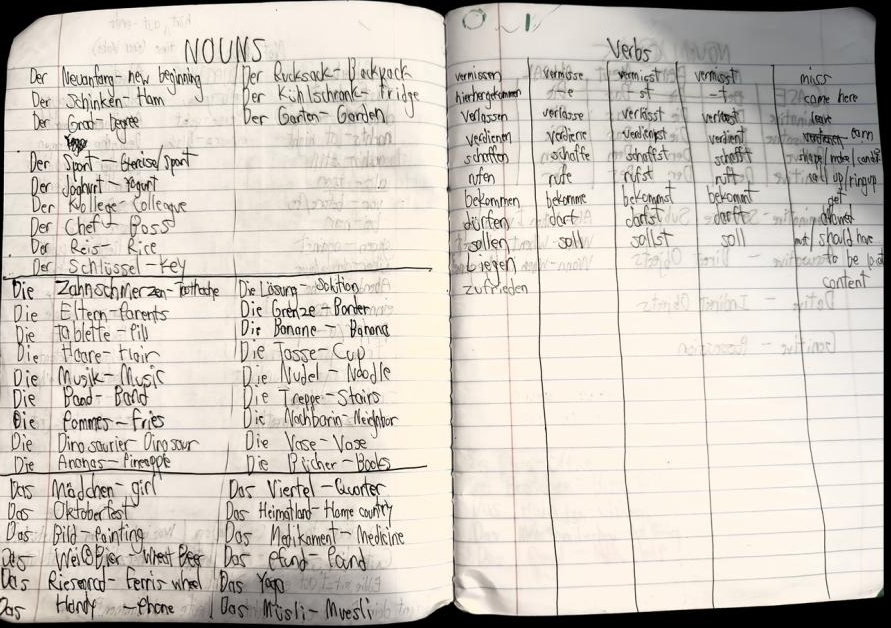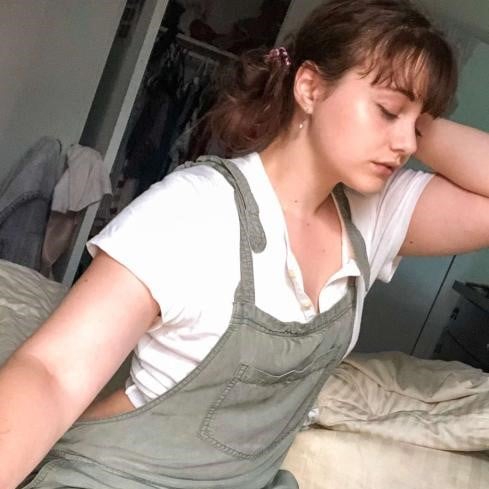Hallo und willkommen zu meiner Frage!
Title says it all, I’ve been taking my Deutsch seriously for just under a year and have found some good tools that I find helpful for learning, I’m sure everyone will have encountered these before but hey — we’re a new community and it’s good to get discussions started.
A book that I’m going through at the minute is called: German Grammar Drills by Ed Swick — recommended by elyssespeaks auf YouTube.
I’ve been using LingQ for a few weeks now and I think it’s such a simple yet useful tool for boosting vocabulary, it makes it enjoyable to read in another language.
Anymore for anymore, currently I’m trying to escape being on three different language apps (looking at you Duolingo, Memrise, Speakly).
Huh, I’ve never heard of the German Grammar Drills book, absolutely is something I’ll need though, I have some strong basics of German grammar, but compared to the other skills in language learning it is definitely my weak spot.
I started learning German with Duolingo, which I honestly suggest for anyone that is first jumping into a language and wants to gauge its worth and learning curve. Duolingo helps drill some basic grammar and vocabulary into your head, but I would not rely on it past an A1 level. Duolingo’s idea of pure repetition to learn new subjects is not the way to go, its more of a tool to make sure you’re reinforcing what you already know.
Easily the most important tool I use for language learning is a notebook for each language. Perhaps other peoples’ brains do not work like this but a notebook to me is an essential repository of information you already know to look over. Also, writing down anything you learn helps further reinforce it. I structure my notebook with pages dedicated to nouns, where the page is broken up by gender (Der, Die, Das), along with verb pages where the page is split into columns for different conjugations.

Besides these two resources, I also use the Nico ist Weg movies, that start at an A1 level and get increasingly harder with each movie. Much better acting and story than you’d expect for a movie to learn German. I just finished up the A2 movie.
Yeah Duolingo is a great introduction but by far the best thing I’ve done is attend a real class and then, like you say, use Duolingo to reinforce what I’ve picked up in class.
Hats off to you for your notebook, that would definitely not work for me but I use Anki to make flashcard decks for this kind of thing, helps me absorb things a bit better — I started doing some iTalki lessons too and then taking all the vocab from those and putting them in Anki, been a gamechanger.
Real classes have definitely been the most help for me. I’m just thinking what I can do for the new school year in September, if there may be classes I can join. I’m still wearing a mask indoors though (I’m covid vulnerable and so are some of the family I live with) so I don’t know how practical that will be.
I used Duolingo, then took face to face small group lessons before the pandemic. We were working on A2 material when covid struck, and the new online teacher was … well it wasn’t working for me.
Since then it’s been a rather undisciplined mixture. I do have the book Grammatik Aktiv A1 - B1 and it is helpful, when I open it and use it! I’ve watched various Youtube and Netflix programs with the help of Language Reactor which lets you see both German and English subtitles at the same time.
I’ve used Clozemaster, and tried the Deutsche Welle website. Their Nicos Weg is good, but I find it very demanding to listen to normally spoken German conversation, instead of a newsreader’s clear articulation!
I really liked the story books by Angelika Bohn - they are at all levels from A1 up to B2, and you can get audio of her reading them too. I wrote a fan letter to her and one thing led to another and now I am having more-or-less weekly Tandem chats via Skype with a friend of hers, an absolutely delightful German woman.
I’ve tried italki, and some teachers were more suited to me than others. Currently I’m reading fantasy books in German on my Kindle, because then I can quickly get a translation of all the many words and sentences that I don’t understand.
I think I made the most progress with the face to face group, but I’m very covid vulnerable so I’m not sure when or if I can pick that up again.
This is awesome! How have you found Clozemaster? I ended up uninstalling it yesterday, it presented itself as something different but really it’s just a very simple version of some of the other apps I’m using.
The DW videos are great, so well produced for a language learning ‘show’ — i’d definitely say stick with it because listening to Germans talk IRL is soooo much harder.
I need to book my next iTalki, it’s the hardest thing to do but there’s nothing quite like putting all the vocab you’ve learnt to use and being somewhat articulate!
I liked Clozemaster for a while, but now it’s only worth it if you get the paid version, otherwise you can only do 30 sentences a day. I did find it helped to see vocabulary in context.
The DW videos are OK but I’d rather watch real input if I’m going to work with speech. I really enjoyed a Netflix film “Offline - das Leben ist kein Bonuslevel”, and a DVD of “Frau Muller muss Weg”. The Netflix Criminal Series were good too.
I’m giving italki a miss for now, because talking to Heidi is much more fun. (She the friend of Angelika Bohn that I mentioned earlier.)
I’ll hang around here, I’m looking for resources to start. People tend to recommend duolingo but tbh I didn’t like it, it feels too random. On the other hand regular school books are boring so I have to find something else.
Before my B2 exam, I used Bing AI a lot, to find what phrases are more common in German that the others. For example, when you want to ask if a seat is free, there are multiple options that are different in friendliness, etc.
Other than that, Bing AI is also a really good Gesprächspartner. You can explicitly tell Bing AI to use easier or more difficult German, which is useful.
That’s a great recommendation — I’ve just downloaded Edge to use it and check my grammar on some things. GPT-4 is way better than the current ChatGPT free model.
I started with Duolingo and supplementing with Deutsche Welle. Eventually I ended up using Lingoda for live lessons, both group and private. Now I watch and read German media.
Hello. This is my first post to Feddit.
I was born in Cambodia but speak English well enough (C1) to have taught it as a substitute teacher. I’ve recently begun trying to learn German on the cheapest possible budget with the help of Creative Commons materials like “A Foundation Course in Reading German” and a used copy of Routledge’s 2004 “Basic German grammar and workbook.” I also downloaded the free and surprisingly comprehensive bidirectional dictionary app QuickDic from http://quickdic.org/index_e.html. My goal is to be able to read conversations on German-only tech forums and on Mastodon with a fair level of comprehension. I used to enjoy reading the /German subreddit before the recent “troubles” there.







